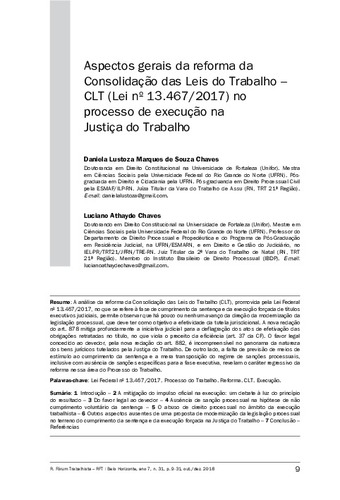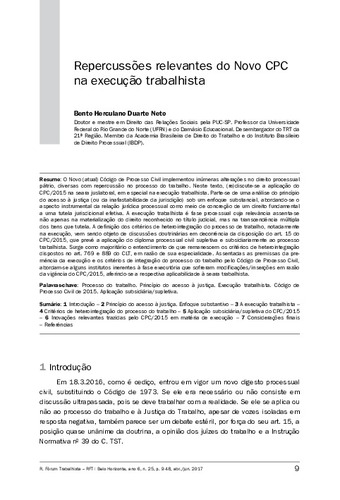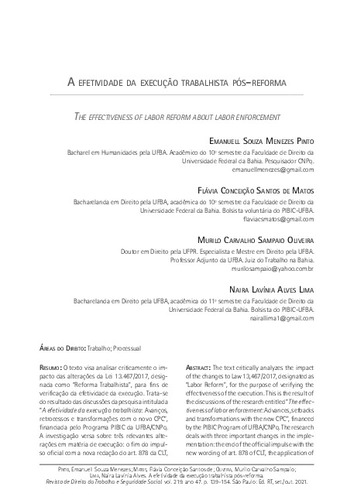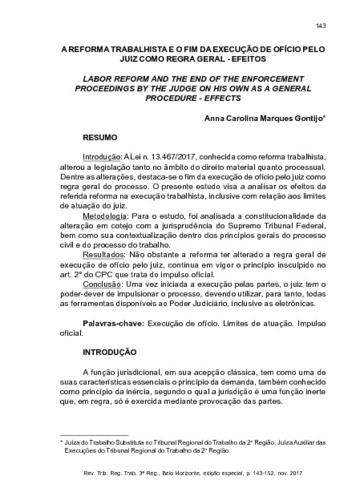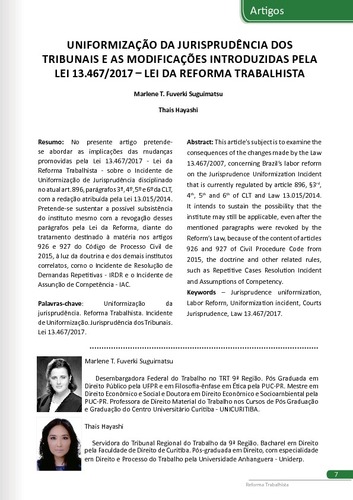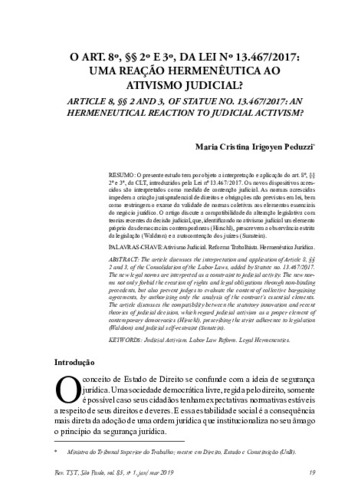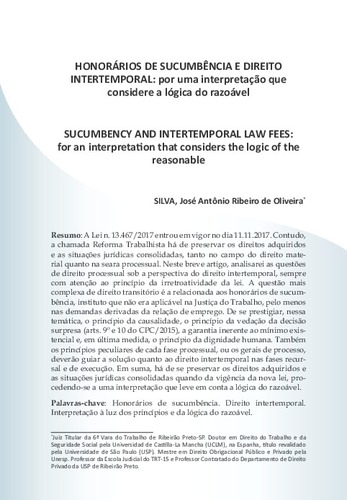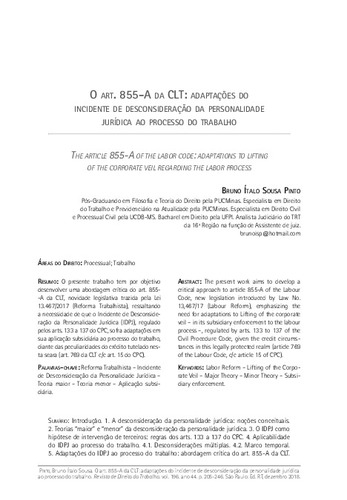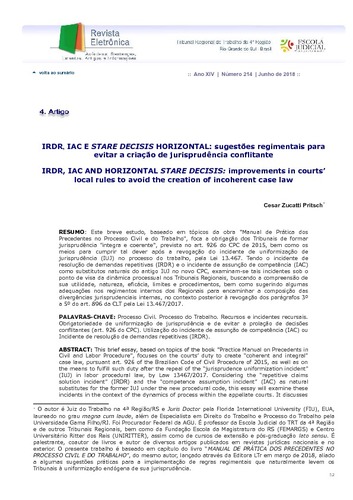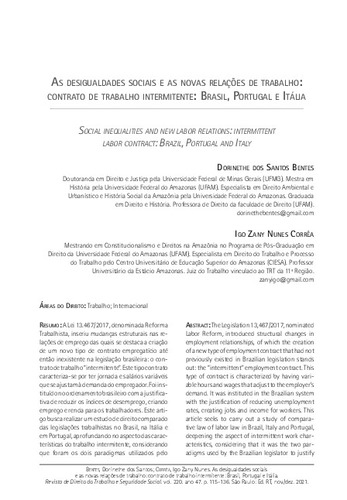Artigo de periódico
Aspectos gerais da reforma da Consolidação das leis do trabalho CLT (Lei n. 13.467/2017) no processo de execução na justiça do trabalho
| dc.contributor.author | Chaves, Daniela Lustoza Marques de Souza | |
| dc.contributor.author | Chaves, Luciano Athayde | |
| dc.date.accessioned | 2021-10-27T22:45:53Z | |
| dc.date.available | 2021-10-27T22:45:53Z | |
| dc.date.issued | 2019-03 | |
| dc.identifier.citation | CHAVES, Daniela Lustoza Marques de Souza; CHAVES, Luciano Athayde. Aspectos gerais da reforma da Consolidação das leis do trabalho CLT (Lei n. 13.467/2017) no processo de execução na justiça do trabalho. Revista Fórum trabalhista: RFT, Belo Horizonte, ano 8, n. 32, p. 9-31, jan./mar. 2019. | pt_BR |
| dc.identifier.uri | https://hdl.handle.net/20.500.12178/194607 | |
| dc.description.abstract | [por] A análise da reforma da Consolidação das Leis do Trabalho (CLT), promovida pela Lei Federal nº 13.467/2017, no que se refere à fase de cumprimento da sentença e da execução forçada de títulos executivos judiciais, permite observar que há pouco ou nenhum avanço da direção da modernização da legislação processual, que deve ter como objetivo a efetividade da tutela jurisdicional. A nova redação do art. 878 mitiga profundamente a iniciativa judicial para a deflagração dos atos de efetivação das obrigações retratadas no título, no que viola o preceito da eficiência (art. 37 da CF). O favor legal concedido ao devedor, pela nova redação do art. 882, é incompreensível no panorama da natureza dos bens jurídicos tutelados pela Justiça do Trabalho. De outro lado, a falta de previsão de meios de estímulo ao cumprimento da sentença e a mera transposição do regime de sanções processuais, inclusive com ausência de sanções específicas para a fase executiva, revelam o caráter regressivo da reforma nessa área do Processo do Trabalho. | pt_BR |
| dc.description.abstract | [eng] The analysis of the Consolidation of Labor Laws (CLT), promoted by Federal Law No. 13.467/2017, with respect to the enforcement phase of the labor procedure, shows that there is little or no progress toward the modernization of the procedural legislation, that must have as objective the effectiveness of the judicial adjudication. The new content of art. 878 profoundly mitigate the judicial initiative for the outbreak of acts of enforcement of the obligations described in the judicial order, which violates the precept of efficiency (art. 37, brazilian Constitution). The legal favor granted to the debtor, due to the new content of art. 882, is incomprehensible in the panorama of the nature of the juridical interests protected by the Labor Justice. On the other hand, the lack of prediction of means to encourage compliance with the judicial verdict and the mere transposition of the procedural sanctions regime, including the absence of specific sanctions for the executive phase, reveal the regressive character of the reform in this area of the Labor Procedure. | pt_BR |
| dc.language.iso | pt_BR | pt_BR |
| dc.relation.ispartof | Revista Fórum trabalhista: RFT: ano 8, n. 32 (jan./mar. 2019) | pt_BR |
| dc.subject | Brasil. Lei n. 13.467, de 13 de julho de 2017 | pt_BR |
| dc.subject | Reforma trabalhista, Brasil | pt_BR |
| dc.subject | Execução trabalhista, Brasil | pt_BR |
| dc.title | Aspectos gerais da reforma da Consolidação das leis do trabalho CLT (Lei n. 13.467/2017) no processo de execução na justiça do trabalho | pt_BR |
| dc.type.genre | Artigo de periódico | pt_BR |
| dc.identifier.rvbisys | 001182975 | |
| dc.relation.ispartoflink | https://hdl.handle.net/20.500.12178/163625 | pt_BR |
Coleção
-
Artigos9497


